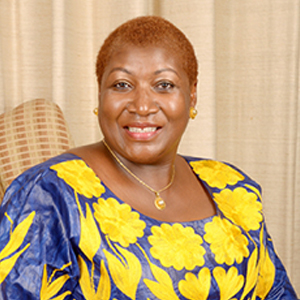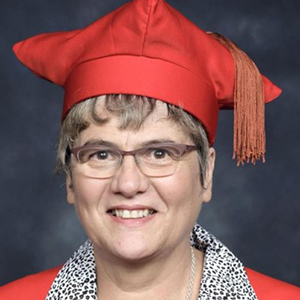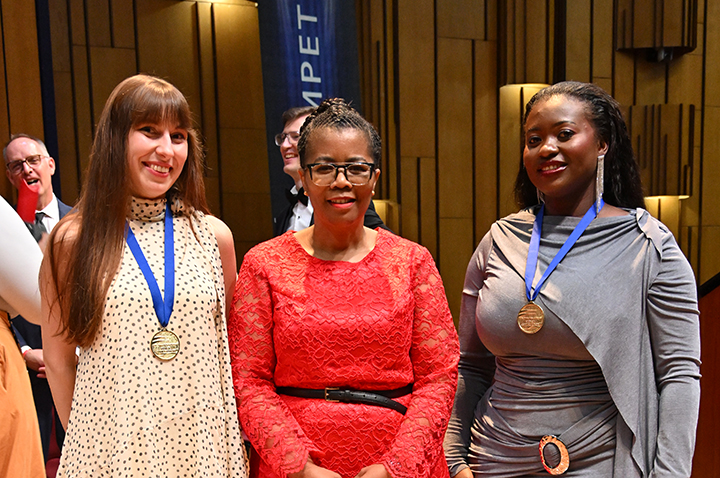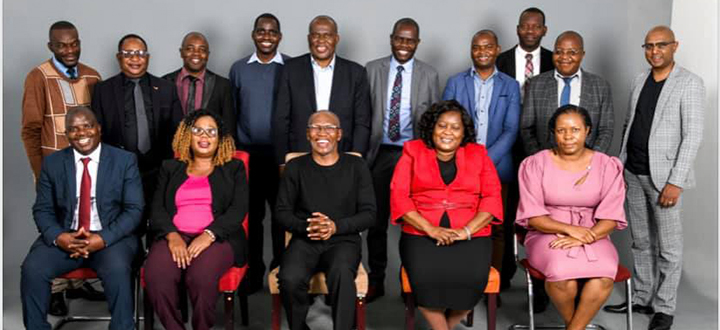
Equipped with state-of-the-art laboratories that provide students with hands-on experiences to bridge theory and practice
The Department of Geography of the College of Agriculture and Environmental Sciences, in collaboration with the Unisa Sustainability Office hosted a celebration of World Environment Day (WED) on 4 June 2021.
WED is celebrated annually and is the United Nations' prime vehicle for encouraging awareness of and active intervention in the protection of the environment. Pakistan was selected as the host country for the 2021 celebration, and has embraced the Bohn challenge by launching the Ten Billion Tree Tsunami project, which aims at reviving forest and wildlife resources.

Ms Cecelia Kinuthia-Njenga (UNEP, Pretoria Hub)
The theme for 2021 is Ecosystem Restoration, which is in line with the UN Decade on Ecosystem Restoration running from 2021 to 2030. Aims include the prevention, halting and reversal of the degradation of ecosystems on every continent and in every ocean. The purpose of the webinar was to bring together scholars, academics and UN stakeholders to deliberate on cross-cutting issues affecting the environment. Three presentations relating to the theme of ecosystem restoration, under the slogan “Reimagine. Recreate. Restore.” were delivered: the first, by Ms Cecelia Kinuthia-Njenga (UNEP, Pretoria Hub) focusing on the broader context of, need for and value of the UN Decade on Ecosystem Restoration, the second, by Dr Anna De Jager (Geography, Unisa) focusing on the ecosystem restoration playbook and the third, by Prof Trevor McIntyre (Life and Consumer Sciences, Unisa) focusing on otters as ecosystem sentinels.
During his opening address, Prof SR Magano, Executive Dean of the College of Agriculture and Environmental Sciences (CAES), emphasised the importance of hosting such events and how they support the vision of the college, namely; to promote sustainable futures through sustainable agriculture, sustainable livelihoods and sustainable environments. He further highlighted the intellectual and scientific space occupied by CAES in the agricultural, life, consumer, geographical and environmental sciences, which provides further encouragement to the college to host more events such as these and to lead action towards the protection and sustainable use of the environment. In this regard he referred to existing collaborations between CAES and other research hubs, such as the Agricultural Research Council and Centre for Climate Change, aimed at mitigating the degradation of our environment
In her presentation, Ms Kinuthia-Njenga cautioned that humankind has been negatively affecting the natural environment through activities that have come to be considered normal. However, most things that are regarded as successes for humans have proven calamitous to the natural environment. Regardless of our positions in society, we therefore have a duty to make a difference through reimagining, recreating and restoring our ecosystems.

Dr De Jager
The presentations by Dr De Jager and Prof McIntyre focused in more detail on specifics relating to ecosystem restoration, with particular mention being made of the importance of conserving the Rietvlei dam in Tshwane as part of an urban nature park, as this will limit the impacts that will have to be borne by the natural environment as it attempts to restore itself. Invisible pollution takes the form of contaminants that cannot be seen with the unaided eye; these pollutants are dangerous not only to the natural environment, but also to the health of humans and animals. Numerous animals are negatively affected by human activities, and many even face extinction. Mitigation as soon as possible is vital if we are to avoid devastating impacts on the ecosystem.
The webinar was brought to a close by Dr Thelma Louw of the Unisa Sustainability Office, who reflected on the key points raised by the three speakers, and Dr Shandukani Nenwiini of the Department of Geography, who offered a vote of thanks.
Click here for the recording of the webinar.
Publish date: 2021/06/23
 Unisa celebrates a project of hope, dignity and student success
Unisa celebrates a project of hope, dignity and student success
 Women vocalists take top honours at Unisa's globally renowned showcase
Women vocalists take top honours at Unisa's globally renowned showcase
 African wealth is dependent on investment in education and development
African wealth is dependent on investment in education and development
 Unisa celebrates matric result success at Correctional Services ceremony
Unisa celebrates matric result success at Correctional Services ceremony
 Unisa ICT Director recognised among acclaimed IT leaders
Unisa ICT Director recognised among acclaimed IT leaders